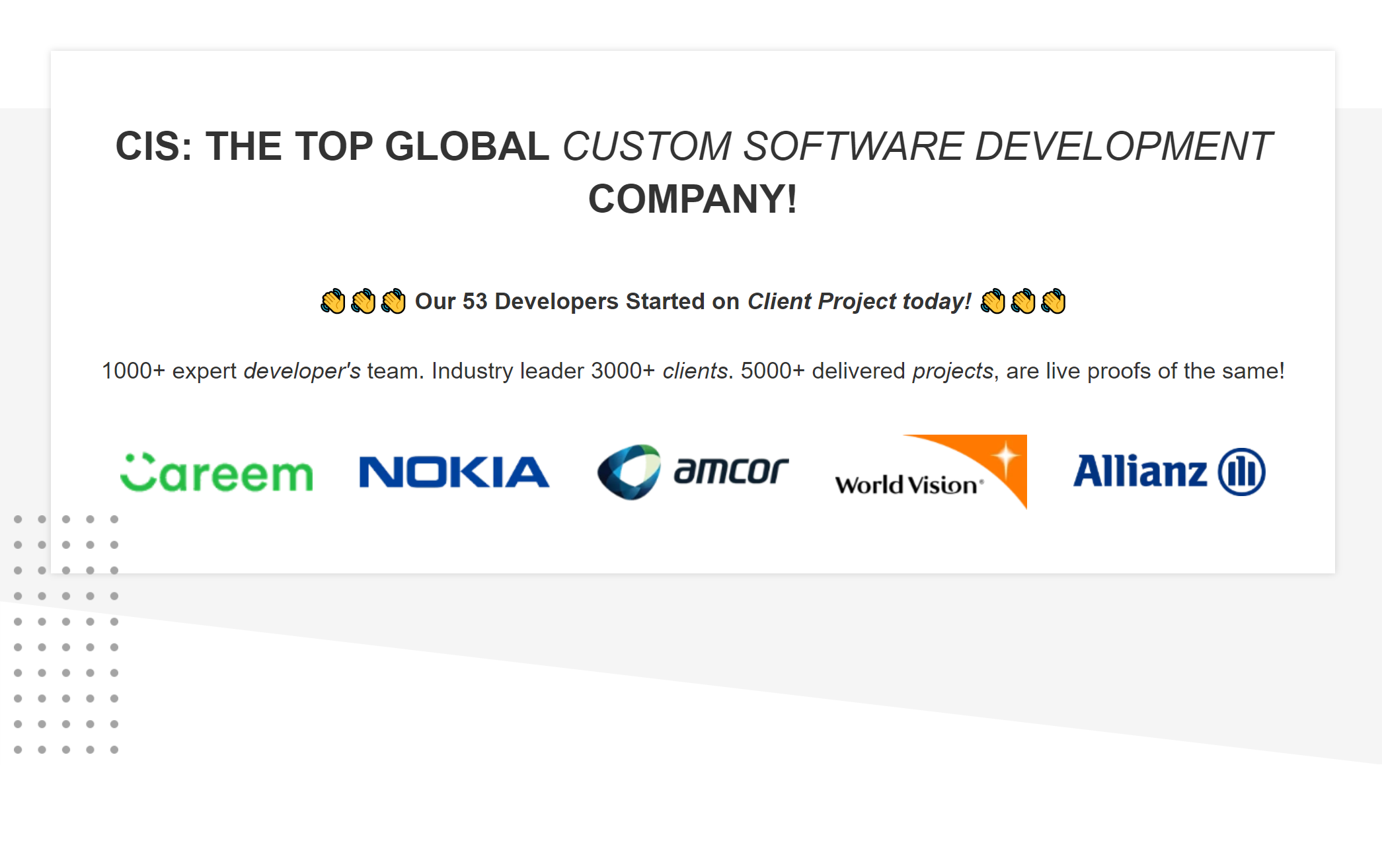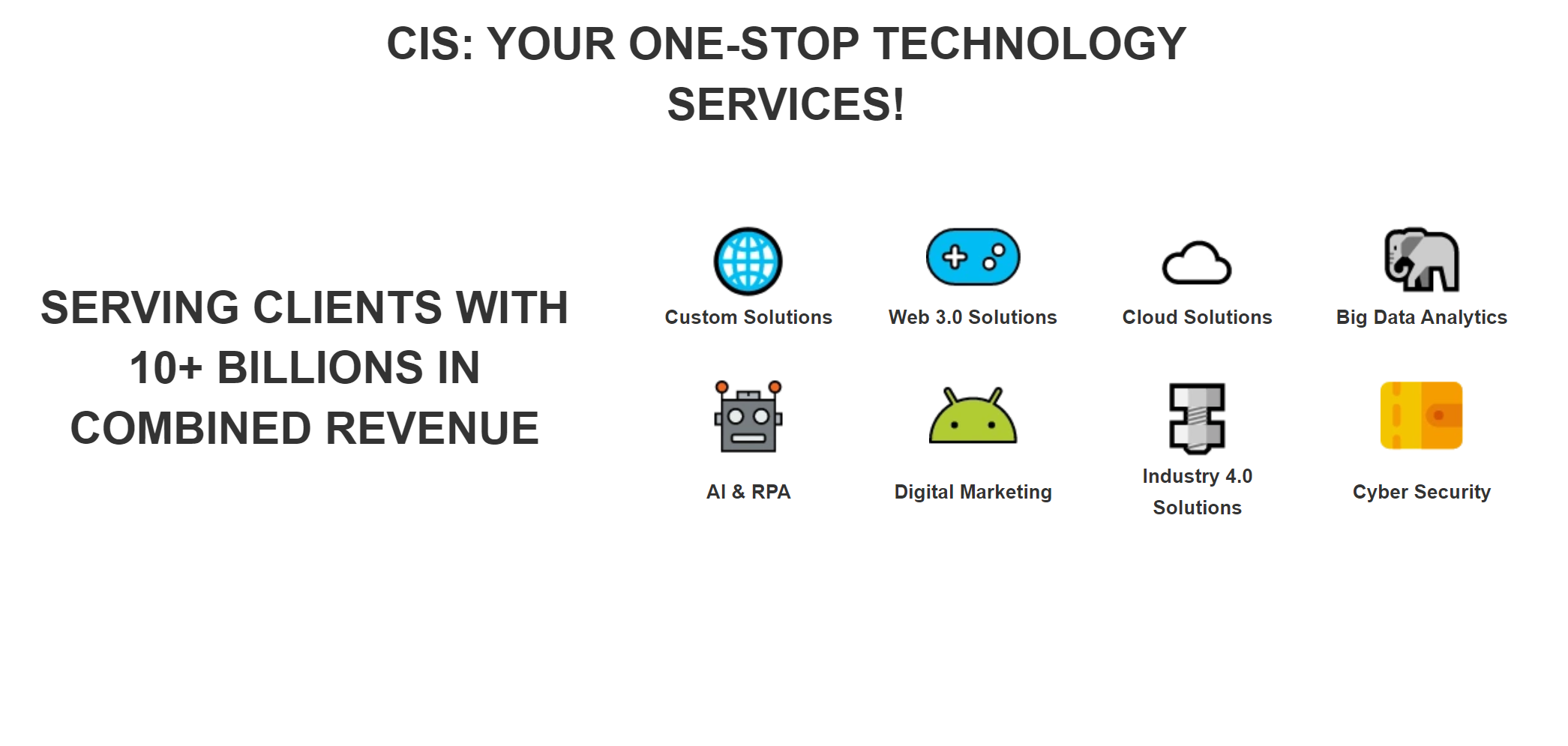Maximizing ROI: The Cost and Benefits of Adopting Sap Extended Warehouse Management for Your Business
- SAP Extended Warehouse Management - Detailed Analysis by Enterprise Solutions Experts
Request A Free Consultation - Why Use SAP Extended Warehouse Management



Why Mid-size Companies and Enterprises needs SAP Extended Warehouse Management:
SAP Extended Warehouse Management (EWM) is a comprehensive warehouse management system that helps mid-size companies and enterprises to optimize their warehousing processes, increase efficiency, and reduce costs. It provides powerful tools for managing inventory levels, tracking orders, optimizing picking routes and improving labor productivity. With EWM, businesses can improve customer service by providing faster order fulfillment times while reducing shipping errors. Additionally, the solution offers enhanced visibility into operations with real-time reporting capabilities across all warehouses in an organization's supply chain network. Ultimately, SAP EWM enables mid-size companies and enterprises to streamline their entire warehousing process from receiving goods to shipping out orders - resulting in improved operational efficiency and cost savings.
Benefits of using SAP Extended Warehouse Management in Mid-size companies and Enterprises:
1. Increased Efficiency:
SAP EWM provides real-time visibility into inventory and stock levels, which allows companies to better plan their operations and optimize processes for increased efficiency.
2. Improved Accuracy:
By automating processes such as picking, packing, shipping and receiving, SAP EWM helps reduce errors in order fulfillment tasks that can lead to customer dissatisfaction or lost sales opportunities.
3. Reduced Costs:
Automated processes also help reduce labor costs associated with manual tasks while increasing throughput times for faster turnaround on orders.
4. Scalability:
Companies can easily scale up their operations without having to invest in additional infrastructure or personnel due to the flexibility of SAP EWM's modular architecture that supports multiple warehouse locations, product types and business models simultaneously.5) Enhanced Visibility & Traceability: With its integrated tracking system and reporting capabilities, SAP EWM gives users access to accurate data about all aspects of the supply chain including inventory levels, order status updates and shipment tracking information - both internally across departments as well as externally with customers and suppliers alike
Detailed Features of SAP Extended Warehouse Management for Mid-size companies and Enterprises:
1. Automated and Optimized Warehouse Processes:
SAP Extended Warehouse Management (EWM) provides automated, optimized warehouse processes for mid-size companies and enterprises to help reduce costs, improve inventory accuracy, increase order fulfillment speed, and maximize asset utilization. This includes features such as advanced storage bin management with integrated material flow control; mobile data entry; lean warehouse execution with real-time visibility into stock levels; goods receipt processing; goods issue automation; cross-docking capabilities; cycle counting & physical inventory optimization; slotting optimization for space utilization improvement.
2. Multi-Channel Fulfillment:
With EWM's multi-channel fulfillment capabilities you can easily manage orders from multiple channels in one unified system while also providing an optimal customer experience across all channels. Features include centralized order management, flexible order splitting strategies, tracking of returns & exchanges, support for multiple shipping methods/carriers per channel or customer segmentation based on predefined rules etc.
3. Advanced Shipping Solutions:
SAP EWM offers a comprehensive suite of advanced shipping solutions that enable efficient packing operations and ensure accurate delivery information is sent to customers quickly via digital communication channels like EDI or web services integration with your ERP system(s). Features include powerful packaging algorithms for optimal box selection according to product dimensions & weight restrictions along with barcode scanning technology to verify package contents before shipment dispatch etc..
4. Yard Management System Integration:
The yard management module within EWM enables the seamless integration between the warehouse & yard operations so that both areas can collaborate more effectively by sharing data in real time which helps optimize resources usage while reducing overall operational costs associated with managing inbound/outbound shipments at dockside locations or container yards etc…Who are the Users of SAP Extended Warehouse Management:
SAP Extended Warehouse Management is used by companies in a variety of industries, including retail, manufacturing, automotive, logistics and distribution. Customers include Amazon, Walmart, Nestle Purina PetCare Company, Johnson & Johnson Supply Chain Solutions and many more.
How to ensure Data Security and Compliance with SAP Extended Warehouse Management:
1. Implement a secure access control system:
Implementing an access control system can help ensure that only authorized users have access to sensitive data. This should include role-based authentication and authorization, as well as multi-factor authentication for added security.
2. Use encryption to protect data:
Encryption is essential for protecting the confidentiality of sensitive data stored in SAP Extended Warehouse Management (EWM). This can be done using industry-standard encryption algorithms such as AES or RSA to encrypt all confidential information within EWM before it is sent over the network or stored on disk.
3. Monitor user activity and audit logs:
Auditing user activities helps you track who has accessed what information and when, allowing you to identify suspicious behavior quickly and prevent unauthorized access attempts from occurring in the future.
4. Establish policies and procedures around compliance requirements:
Establish clear policies regarding how employees are expected to handle sensitive customer information, such as credit card numbers or Social Security numbers, while working with EWM systems so that they remain compliant with applicable laws and regulations at all times.
5. Adopt cloud security best practices:
If your organization uses a cloud service provider for its EWM systems, make sure that you adhere to best practices related to cloud security by regularly monitoring usage patterns for any potential threats or vulnerabilities, implementing appropriate safeguards against malicious attacks like DDoS attacks, etc., and ensuring that all necessary measures are taken if any issues arise with regards to compliance standards like PCI DSS or HIPAA .How SAP Extended Warehouse Management can increase organization Productivity, Agility, and Profitability:
SAP Extended Warehouse Management (EWM) is an integrated warehouse management system that helps increase organizational productivity, agility, and profitability. It provides advanced automation capabilities to help streamline processes and reduce manual labor costs. With its real-time visibility into inventory levels and stock movements, EWM can enable organizations to make smarter decisions about their supply chain operations. Additionally, it offers improved accuracy in order fulfillment as well as enhanced customer service by providing faster delivery times. By automating key warehouse processes such as goods receiving, put away, picking/packing and shipping with EWM, organizations can improve their operational efficiency while reducing errors associated with manual tasks. Ultimately this leads to higher profits through increased throughput and greater customer satisfaction due to shorter lead times for orders.
How to Measure KPIs and increase Benefits of implementing SAP Extended Warehouse Management in Mid-size companies and Enterprises:
1. Monitor Inventory Accuracy:
The first step in measuring the benefits of implementing SAP Extended Warehouse Management (EWM) is to monitor inventory accuracy. This can be done by tracking the number of stock discrepancies that occur between physical and system-generated counts, as well as analyzing any discrepancies that do happen.
2. Increase Efficiency & Productivity:
An important KPI for evaluating EWM's success is increased efficiency and productivity in warehouse operations. By automating processes such as order picking, packing, and shipping with EWM, mid-size companies and enterprises can expect to see improved performance levels across their supply chain operations.
3. Monitor Inventory Turnover Rate:
Another key metric to measure when assessing the value of EWM implementation is inventory turnover rate - this will indicate how quickly products are being sold or used up within a given period of time compared to total available stock on hand at any one point in time.
4. Track Customer Satisfaction:
Finally, customer satisfaction should also be monitored closely when assessing the impact of an EWM implementation project - this could include surveys or interviews conducted with customers about their experiences with various aspects of your company's supply chain operations before and after implementation took placeHow SAP Extended Warehouse Management can increase Employee Morale in your organization:
SAP Extended Warehouse Management can increase organization employee morale by providing employees with better tools and processes for managing warehouse operations. It can enable faster order fulfillment, improved accuracy in inventory management, and more efficient use of resources. This helps to reduce the burden on employees while increasing their productivity and satisfaction. Additionally, it allows managers to track performance metrics in real-time so they have up-to-date information on how well the team is performing. By having access to this data, managers can better understand what areas need improvement or extra support which gives them the opportunity to provide feedback that leads to increased motivation and morale among staff members.
How SAP Extended Warehouse Management is Better than its Competitors:
SAP Extended Warehouse Management (EWM) is an advanced, automated warehouse management system that provides comprehensive support for all supply chain logistics processes. It offers a range of features and functionalities that make it better than its competitors, including:
1. Automated Storage and Retrieval Systems (AS/RS):
EWM enables efficient storage and retrieval of goods with AS/RS technology, which helps reduce labor costs while increasing accuracy and throughput.
2. Advanced Inventory Control:
EWM allows you to manage your inventory more efficiently by providing visibility into stock levels across multiple warehouses or locations in real-time. This makes it easier to plan for the future as well as respond quickly to customer orders or changes in demand.
3. Real-Time Tracking & Traceability:
With EWM's integrated tracking capabilities, users can trace products from origin through delivery using barcodes or RFID tags for increased accuracy and transparency throughout the entire supply chain process.
4. Optimized Shipping Processes:
The system also helps optimize shipping processes by enabling users to create optimized pick lists based on order type, customer location, product availability etc., resulting in faster turnaround times and improved customer satisfaction levels overallCost to Develop & Implemention of SAP Extended Warehouse Management:
The cost of developing and deploying SAP Extended Warehouse Management will vary depending on the size and complexity of your business. Generally, costs range from $50,000 to over $200,000 for a complete implementation. This includes software licensing fees, hardware setup costs, training expenses, consulting fees and any customization needed to meet specific requirements.
Why outsourcing implementation services for SAP Extended Warehouse Management is better for Mid-size companies and Enterprises:
Outsourcing implementation services for SAP Extended Warehouse Management is beneficial for mid-size companies and enterprises because it can help them save time, money, and resources. Outsourced services provide access to experienced professionals who are knowledgeable in the latest technologies and processes used by SAP EWM. This allows businesses to focus on their core operations while the provider takes care of all aspects of the implementation process. Additionally, outsourcing offers better scalability options so that a company can easily expand or contract its warehouse management system as needed without any disruption. Finally, experienced providers often have more cost-effective solutions than what an in-house team might be able to offer.


